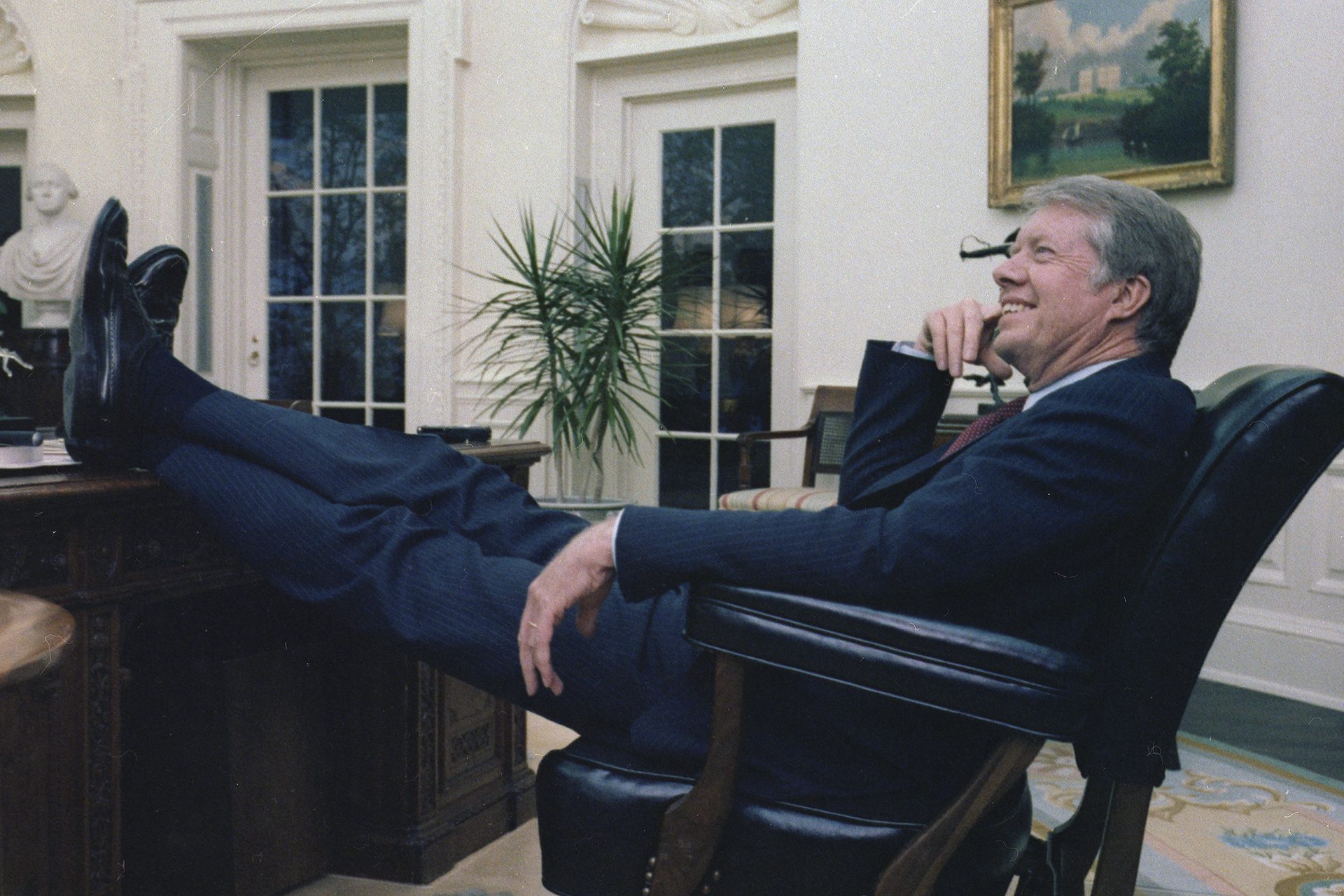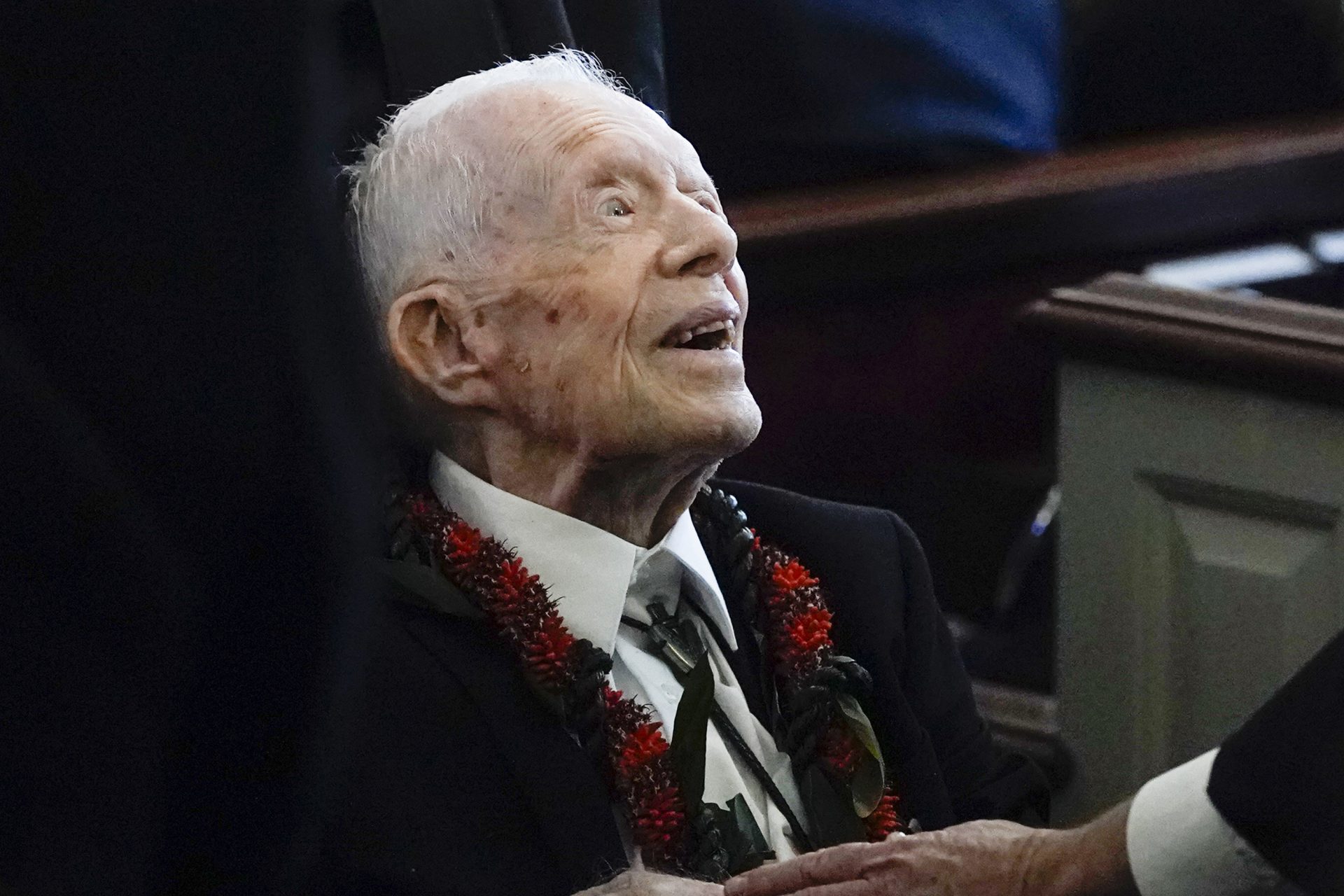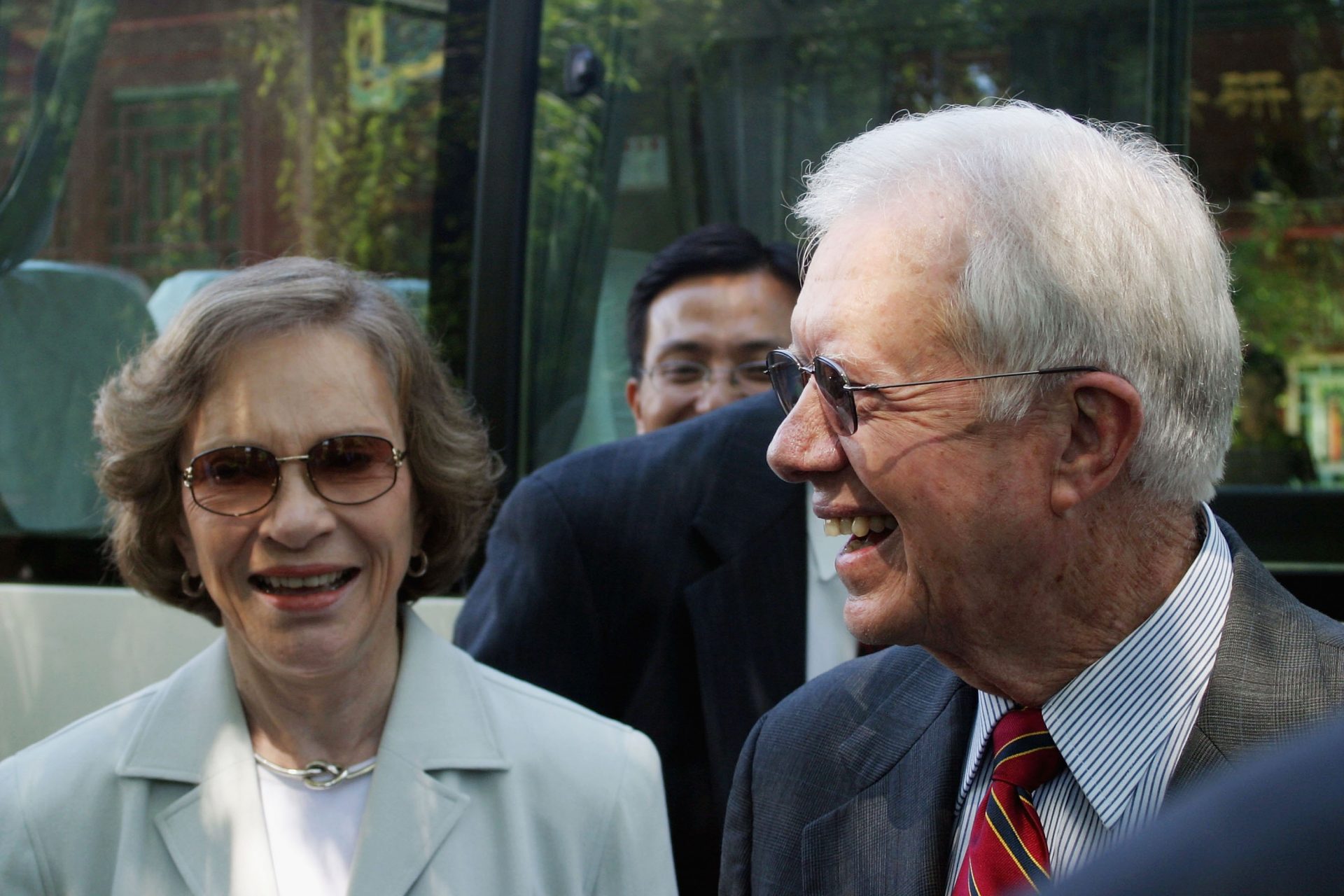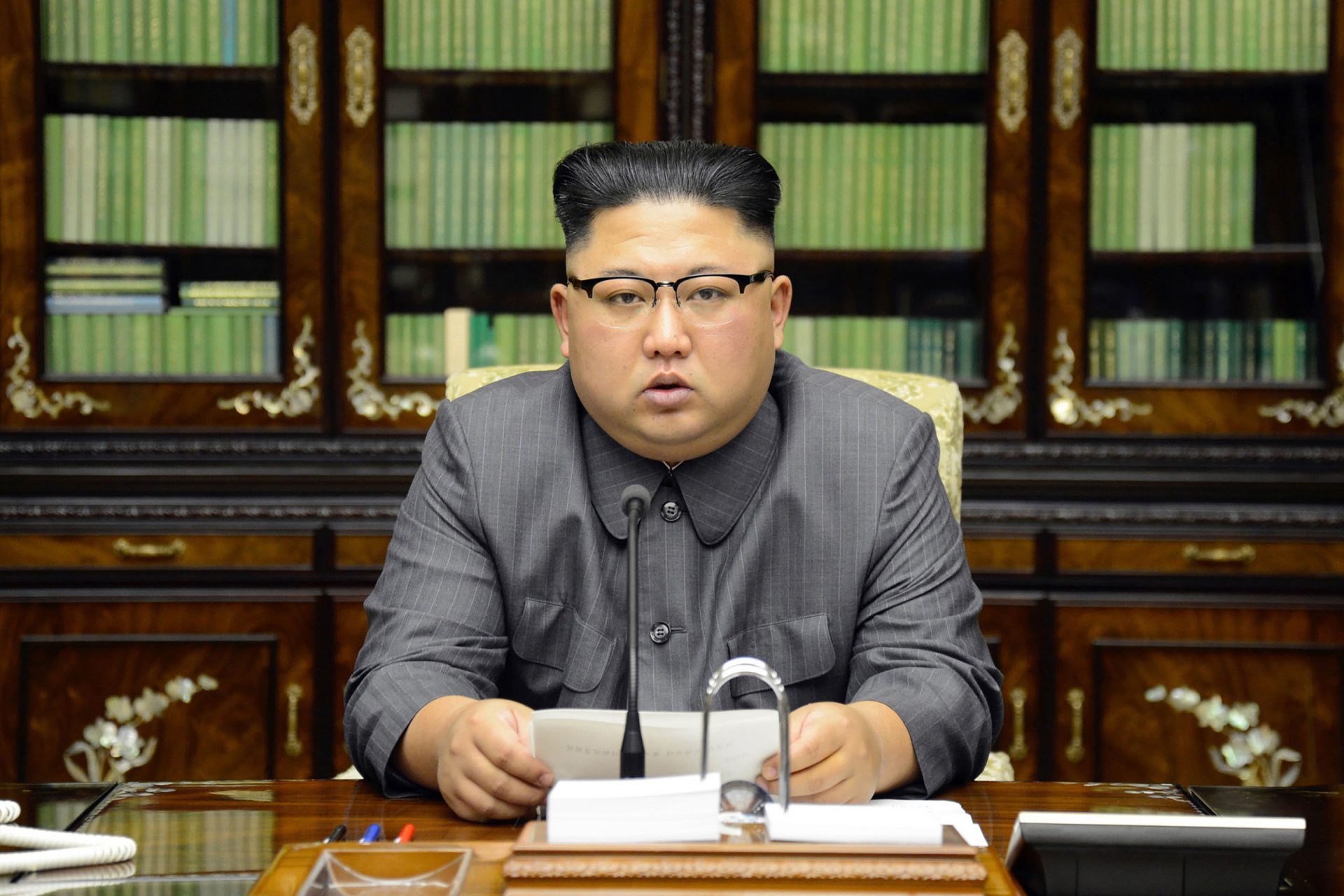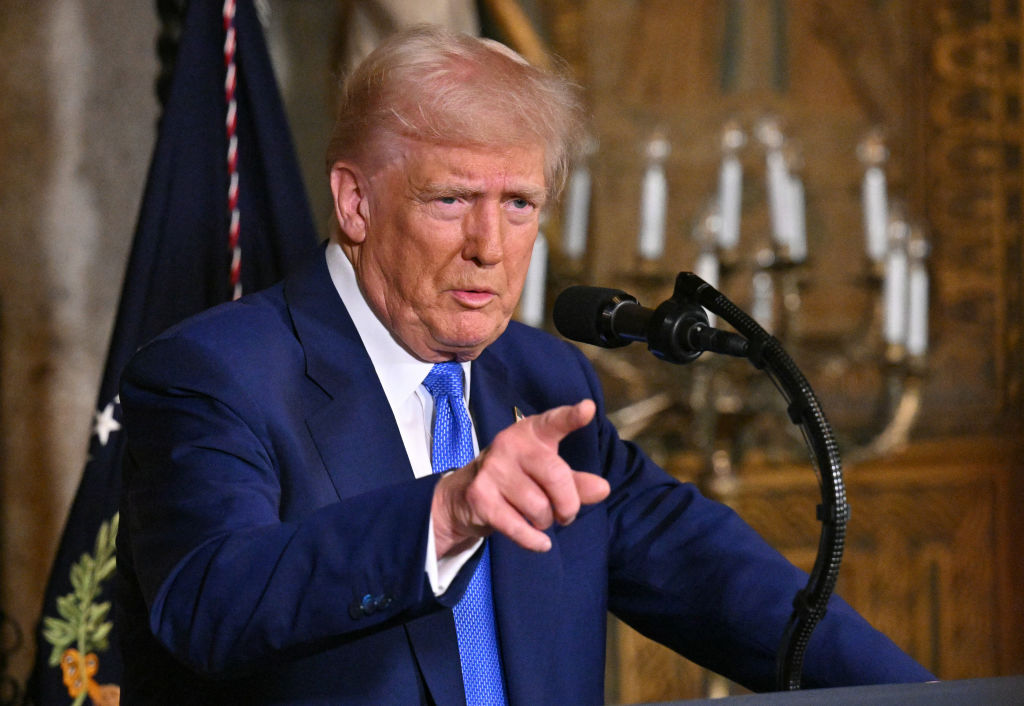Former President Jimmy Carter passes away at 100: A photographic tribute
Jimmy Carter, former President of the United States, has passed away at the age of 100. His death has been confirmed by CNN among other news organizations.
The former US president had been seriously ill for a long time. Earlier this year, he had stopped medical treatment for an unspecified condition. He was in hospice care at home in his state of Georgia.
Over a year ago, family of the former president warned that they believed he wouldn't live much longer. In August 2023, one of his grandchildren, Josh Carter, in an interview for People stated that "it is clear that we're in the final chapter" regarding his grandfather's life.
The news from the family came months after The New York Times reported that former President Carter had decided not to continue with any more medical treatment for a long-standing illness and had been entrusted to palliative care at his home.
Carter was the longest-serving former White House president. The New York Times has highlighted that, over the years, he has been dealing with several health crises, including skin cancer that metastasized to the liver and brain.
But let's do a little history, let's look back to remember the life and work of the 39th president of the United States. James Earl Carter, Jr., was born on a small farm in Plains, Georgia, on October 1, 1924.
The future president of the United States graduated from his country's Naval Academy in 1946, where he later joined the Navy.
He became a submariner, serving in both the Pacific and the Atlantic. Around the same time, he married Rosalyn Smith, who would eventually become his lifelong companion.
Young Carter returned to work on his family's peanut farm after his father's death in 1953. Jimmy Carter Sr. is pictured with some of his sons, including Jimmy, in the late 1920s.
Jimmy and Rosalyn ended up running Carter's Warehouse, a seed and farm supply business in the Plains. There, he rose to become one of the leaders in his community, serving on county boards overseeing health and education.
The 1960s in the American South were a divisive time, with Carter campaigning for civil rights and ending racial segregation. Something that today sounds logical, but that, at the time and in that specific place, was highly controversial.
The future president of the United States began his political career in 1962, when he was elected to the Georgia Senate.
Carter ran for governor of Georgia up to two times, winning his second attempt, in 1971. And, shortly after, in 1974, he would also work as campaign chairman for the Democratic National Committee.
In 1973, interestingly, Carter appeared on the television show 'What's My Line?', where none of the guests knew who he was. And, much less could they imagine at that time that he would end up running for president of the country just three years later, in 1976.
Image: GSN
At that time, Watergate broke out, a scandal that marked a before and after in US politics, forcing the resignation of President Richard Nixon and the inauguration of Vice President Gerald Ford.
Ford, for his part, was seen by many as squandering his initial popularity by forgiving Richard Nixon, as well as mishandling a time of recession that came upon him during his tenure.
In 1976, for the first time, the Democratic candidate was decided by the new primary system, something that Carter took advantage of, gaining momentum from the beginning. He soon defeated other candidates such as California Governor Jerry Brown.
One thing that worked in Carter's favor was that he brought fresh air to the party and politics, he was a fresh face who managed to balance a folksy, southern, Christian personality with progressive values. This clashed with old school 'dixiecrats' like Alabama Governor George Wallace.
Finally, Carter narrowly defeated Ford in 1976, becoming the 39th President of the United States.
On his second day as President of the United States, Carter pardoned all objectors to military service in the Vietnam War, setting the tone for the next four years. The Carter Administration additionally established the Departments of Energy and Education.
In the international arena, it continued the Camp David Agreements between Egypt and Israel and the Torrijos-Carter Treaties, establishing the return of the Panama Canal.
However, the Carter Administration was embroiled in many internal problems, such as the energy crisis and the Three Mile Island nuclear accident of 1979.
Also a witness as president of the Soviet invasion of Afghanistan in that same year, 1979, Carter came to impose a grain embargo against the USSR.
This, of course, led the United States and many of its allies to boycott the 1980 Summer Olympics, which were being held in Moscow.
The revolutions in Nicaragua and Iran also took place under the Carter presidency. And many believe his mishandling of the Iran hostage crisis led to his defeat in 1980.
Ronald Reagan defeated Jimmy Carter with a landslide victory in 1980, beginning a new era that would span nearly a decade, until 1989.
It would not be an exaggeration to say that, since his presidency, Carter's career has been far more remarkable than his time in the White House.
The former president of the United States founded the Carter Center in 1983, a nonprofit organization dedicated to promoting democracy and protecting human rights around the world while addressing public policy issues.
One week a year, Jimmy and Rosalyn Carter have volunteered with the NGO 'Habitat for Humanity', building and repairing houses for those in need. The former president of the United States is also a deacon and teaches Sunday school at Maranatha Baptist Church in Plains, Georgia.
In 2002 Jimmy Carter received the Nobel Peace Prize. The committee stated that he was awarded for "his decades of tireless efforts to find peaceful solutions to international conflicts, promote democracy and human rights, and economic and social development."
Jimmy Carter's wife, Rosalynn, passed away in November 2023. They had been married for 77 years. The former president himself died surrounded by the remaining members of his family, according to CNN.
More for you
Top Stories



